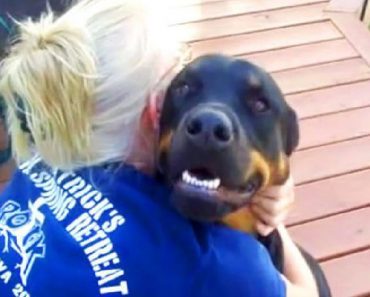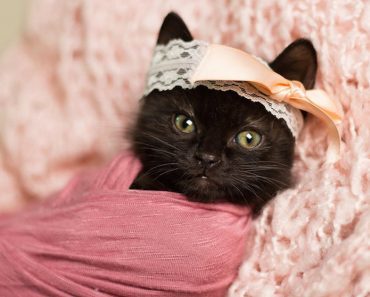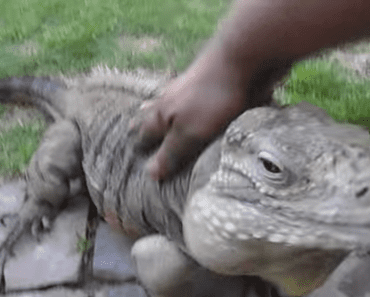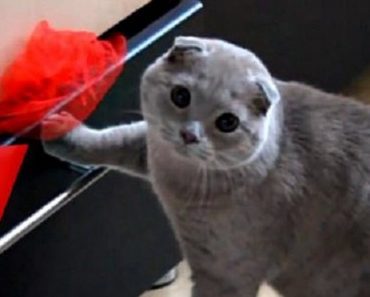When rescuers found the baby chimp, she was sitting inside an old cardboard box, clinging to the only piece of comfort she had — a piece of tattered clothing.
Last week, a rescue team from Liberia Chimpanzee Rescue and Protection (LCRP), along with local police and authorities from the Forestry Development Authority (FDA), found the baby chimp in a supply shop in Kakata, Liberia, after getting an anonymous tip.
The chimp, named Chance, looked to be about a year old, and her “owners” had been keeping her as a pet for the past few months. While it’s not entirely clear how they got Chance in the first place, it was easy for the rescue team to fill in the gaps.
“We know her mother was killed,” Jenny Desmond, founder of LCRP, told The Dodo. “One cannot acquire a baby chimpanzee without first killing his or her mother and other nearby adult family members. The adults are butchered and sold on the black market for bushmeat and the infants are kidnapped and sold into the live pet trade, both locally and internationally.”
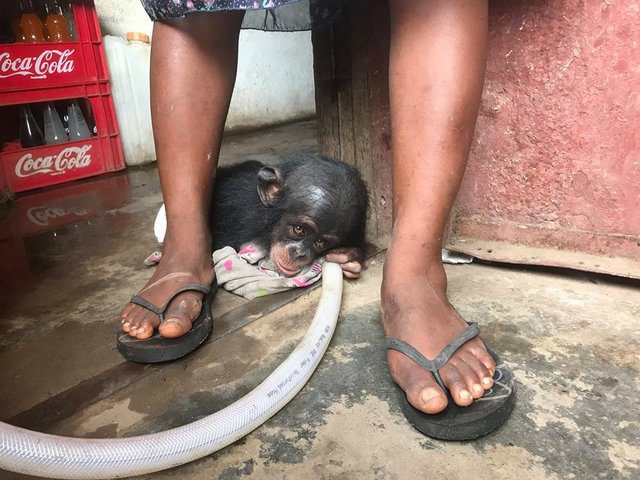
After losing her mom in a traumatic way, Chance would have needed a lot of nurturing care — but instead, her new owners left her inside a cardboard box in the corner of their shop.
“It seems she spent most of her time in the box, and when outside the box, on the concrete and dirt ground at the shop,” Desmond said. “It does not seem she was picked up or held very often as she has had to learn how to be picked up and cling to me since we rescued her.”
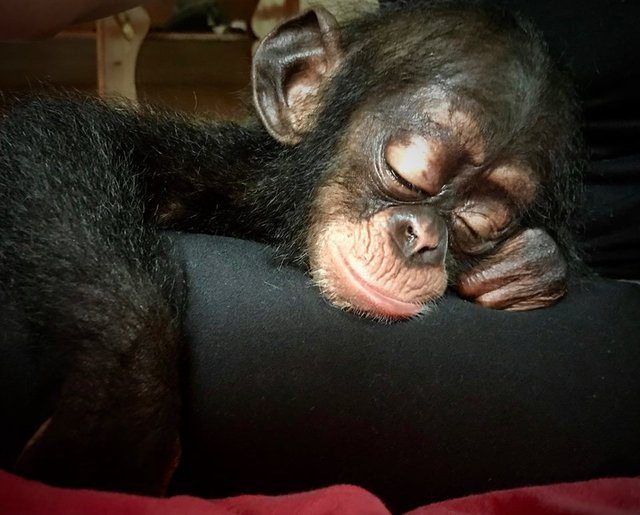
Living in captivity had taken a heavy emotional toll on Chance by the time she was saved — her eyes appeared vacant, and she exhibited stereotypic behavior like rocking back and forth, according to Desmond. She also clung to her piece of tattered clothing, which seemed to be her sole source of comfort.
“Her rocking and clinging to the cloth are clear indicators of stress, trauma and a severe lack of attention and nurturing,” Desmond said. “Chimpanzees who have 24/7 surrogate mothers do not have a need for these types of comforts as they are clinging to their ‘mothers’ and receiving the comfort from them instead.”
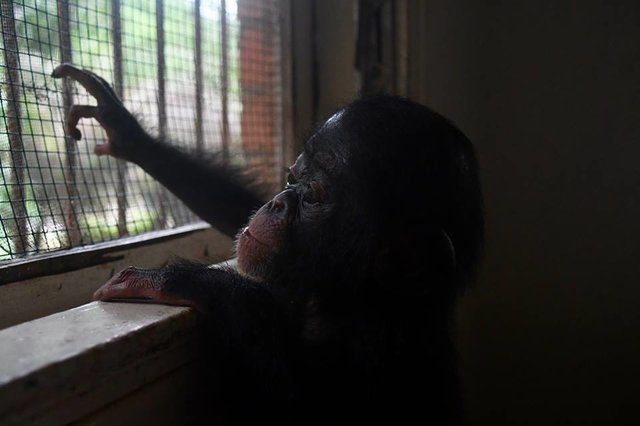
The rescue team was concerned about Chance’s physical condition as well. Her owners had only been feeding her rice and cornmeal, and she was very skinny, malnourished and underdeveloped for her age. She also appeared to have a buildup of fluid in her head, which was probably the result of some kind of trauma.
The team had to get Chance out of the shop as quickly as they could, and unfortunately, Chance’s piece of tattered clothing got left behind. To help Chance cope, Desmond immediately gave the baby chimp another warm blanket to hold onto.
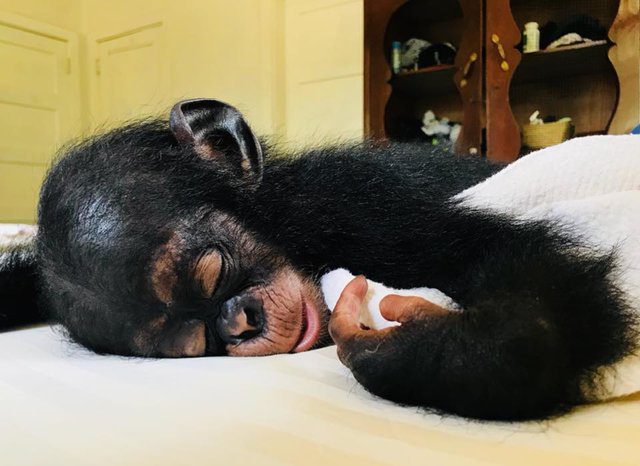
But once Chance got to the rehabilitation center at LCRP, something amazing happened — Chance started becoming less dependent on the blanket.
“We give all the little ones blankets at night and they are certainly welcome to carry them anytime,” Desmond said. “It is generally our experience, however, that their need for the blankets as unhealthy sources of comfort disappear rapidly with increased care and proper nurturing.”
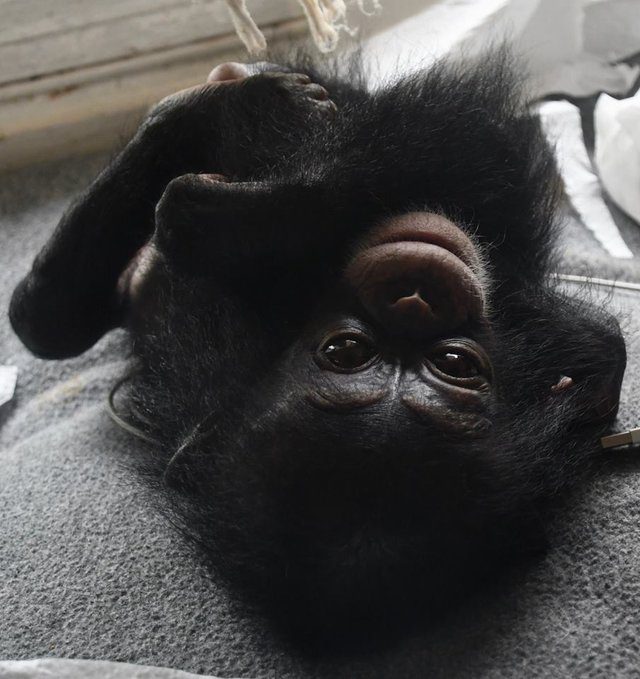
Chance has stopped rocking back and forth, and she’s starting to stand up and hold up her arms to be picked up, which Desmond said is a great sign. She’s also not clasping her feet when being carried, but wrapping her legs around Desmond’s waist, which is normal clinging behavior.
“She is progressing and recovering rapidly,” Desmond said. “We have found chimpanzees to be unbelievably resilient.”
Chance has even started to laugh and smile, which has filled her caretakers with joy. “It’s been very uplifting seeing this beautiful little girl blossom before our eyes,” Desmond said.
Over the next several years, the caretakers at LCRP will give Chance around-the-clock care, and help her grow healthy and strong with nutritious food and lots of love. And once she’s feeling better, she’ll meet the other young chimp orphans at LCRP.
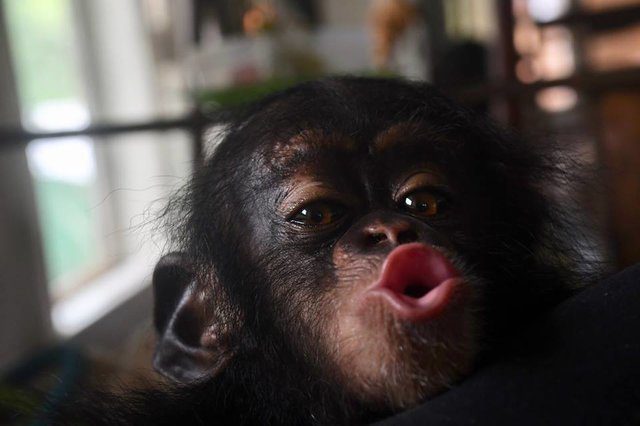
“She will be introduced to other chimpanzees in a safe and slow process, allowing her to choose [the] level of interaction and time with other chimps,” Desmond said. “Slowly but surely, she will be integrated into our youngest nursery group and will never again be without chimpanzee family members.”
At this point, no one knows if Chance will be able to be released back into the wild, although that would be the ideal outcome, Desmond explained.
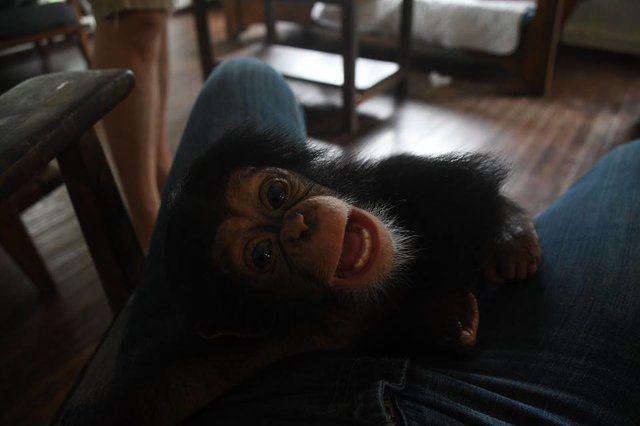
“Returning to the wild, known as reintroduction, is a long and complex process and while we dream of this it is not simple or assured,” Desmond said. “There is hope for chimpanzee reintroduction in Liberia as chimpanzees naturally occur here, and there are still large tracts of forest remaining. Reintroduction involves many factors and multiple groups and experts to assess and determine feasibility.”
If reintroduction is not possible, LCRP will make sure that Chance has the most fulfilling life she could possibly have. “I expect full rehabilitation and she will live in a seminatural spacious forest environment with other chimpanzees for her lifetime,” Desmond said.
If you know someone who might like this, please click “Share”!


